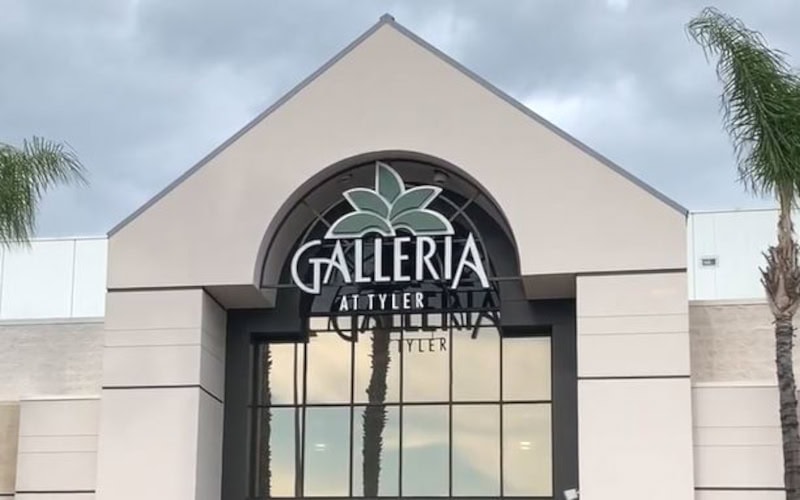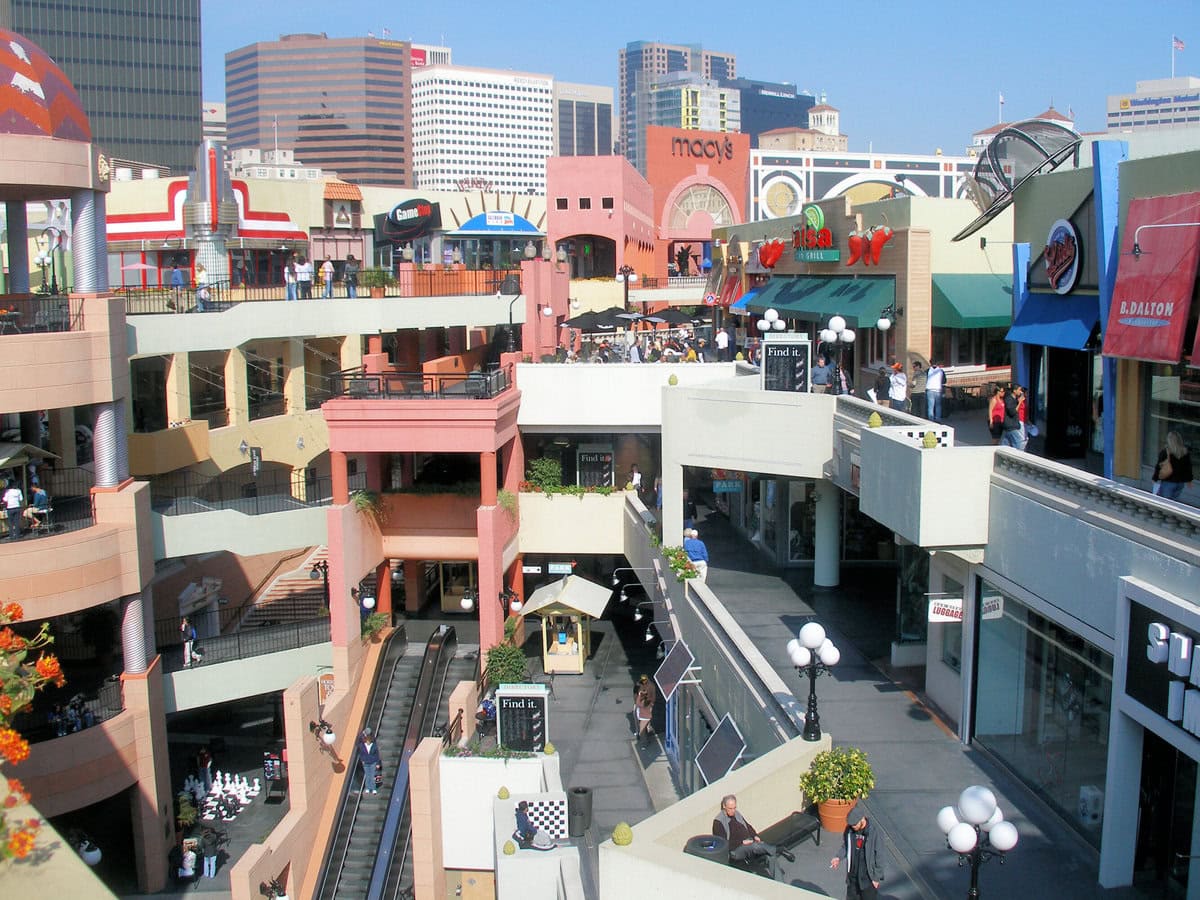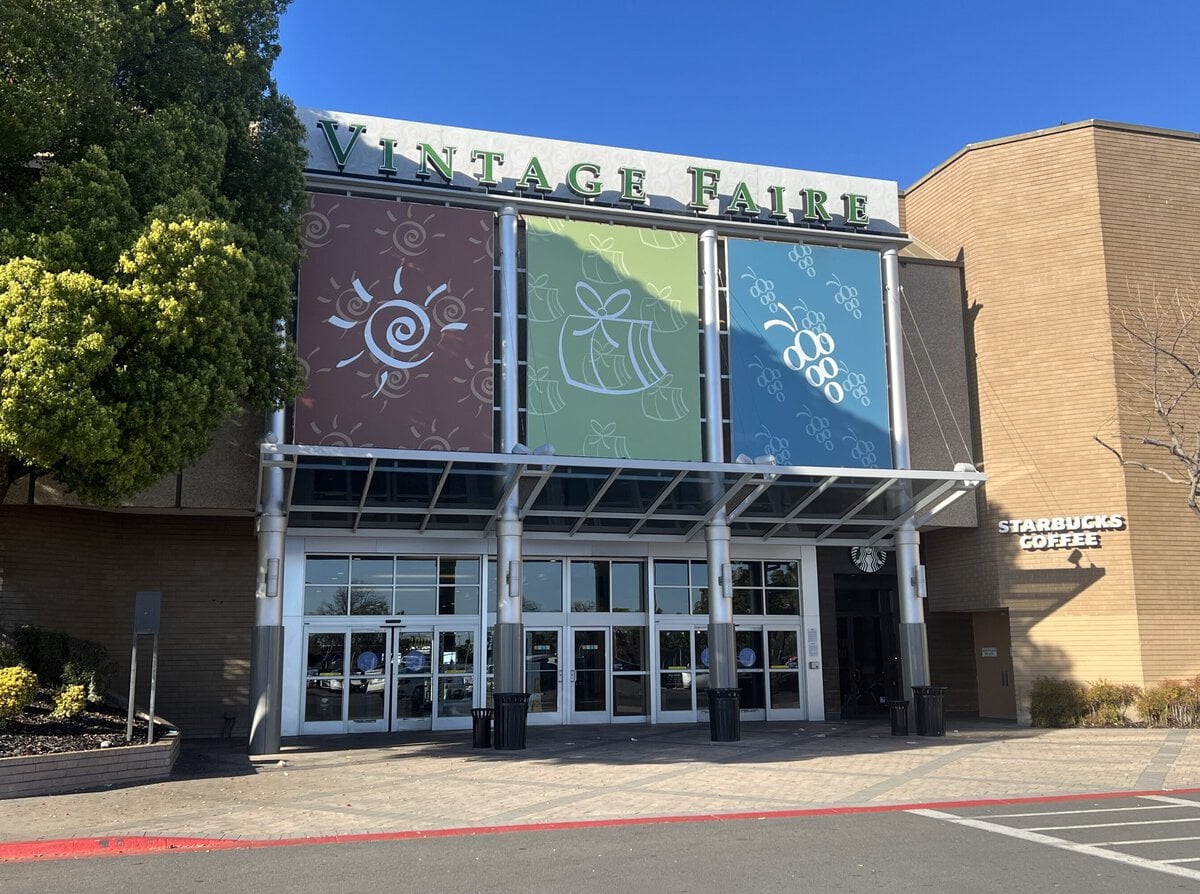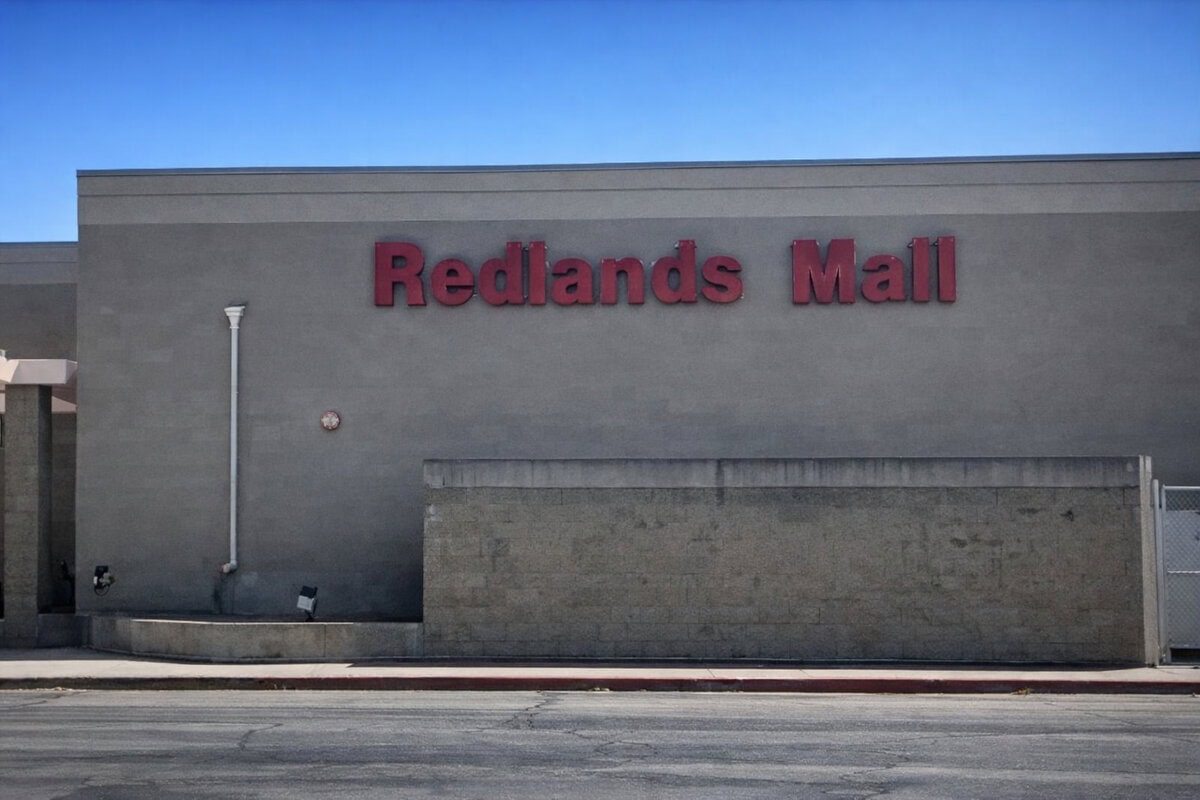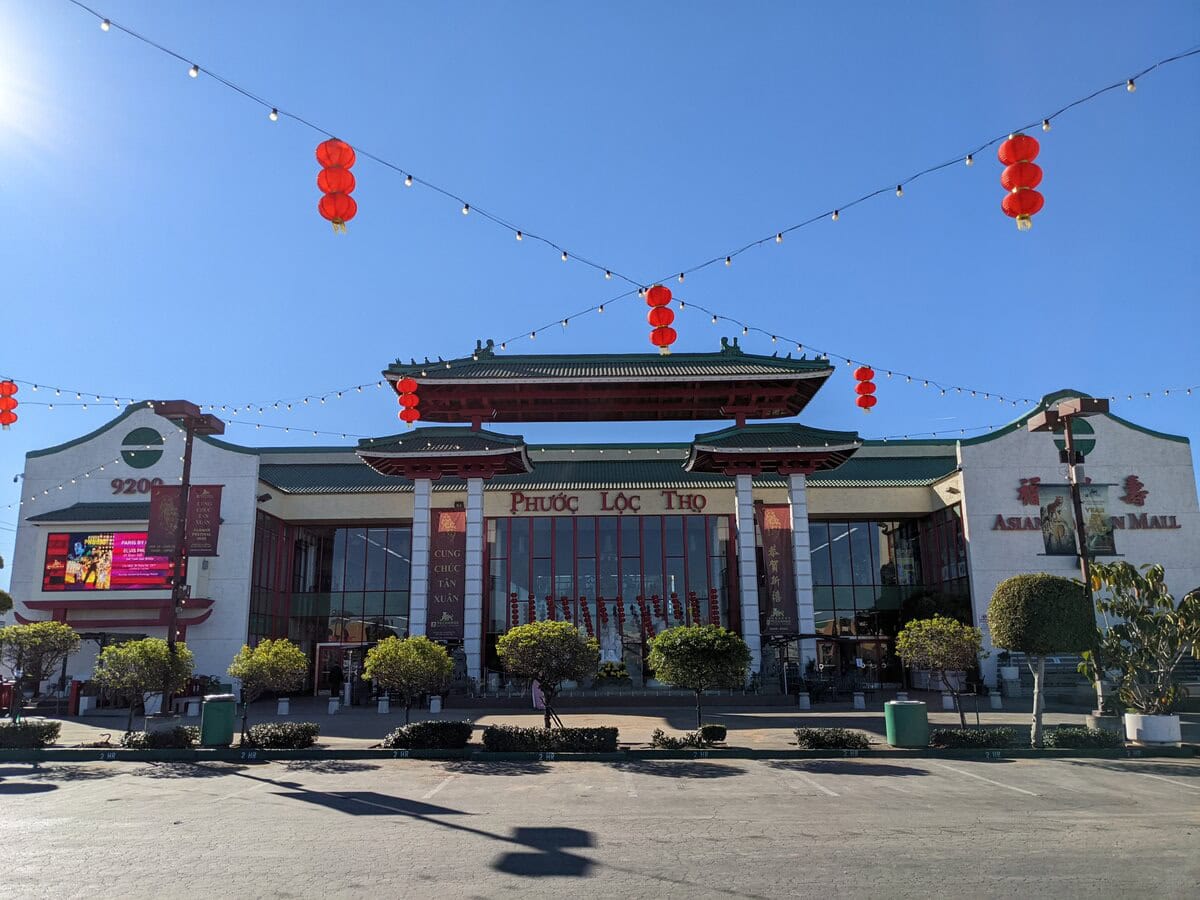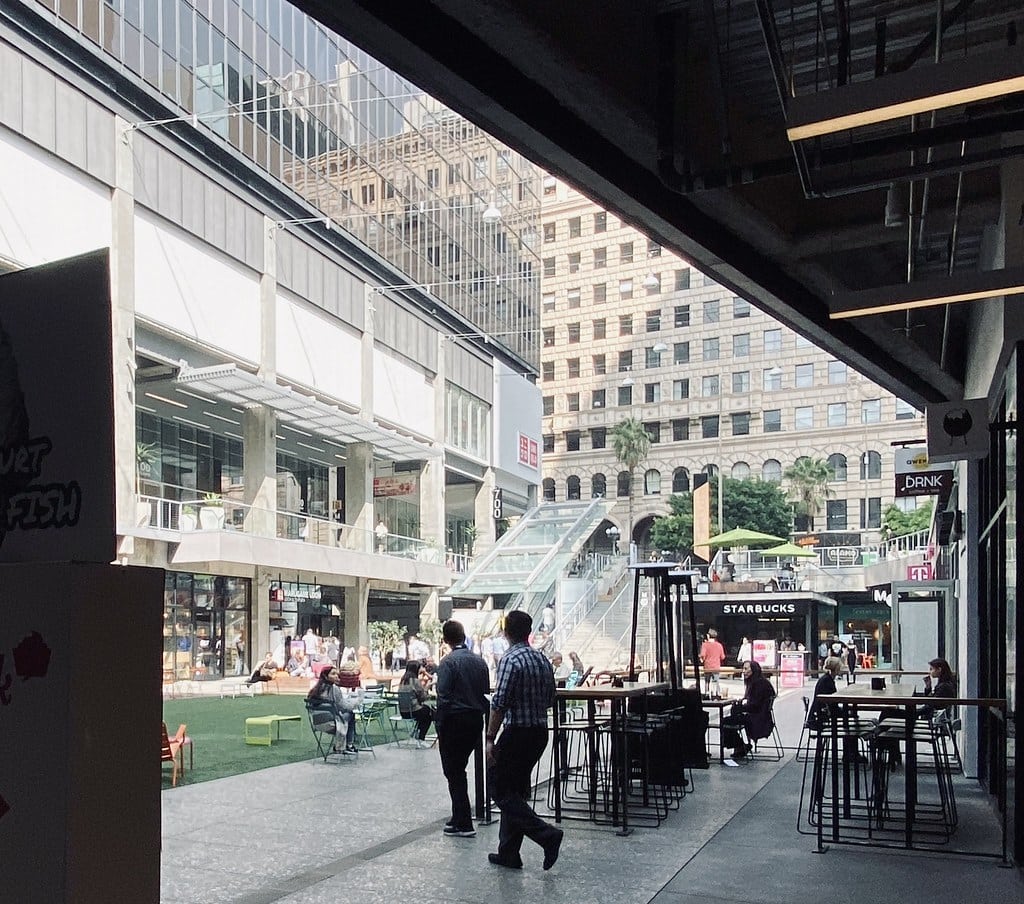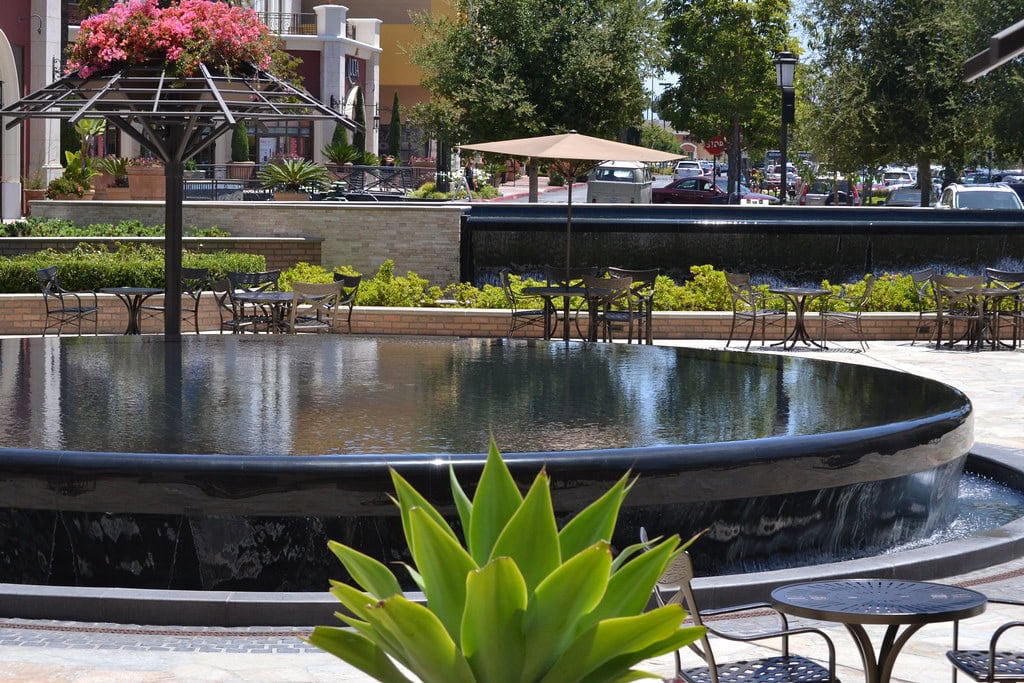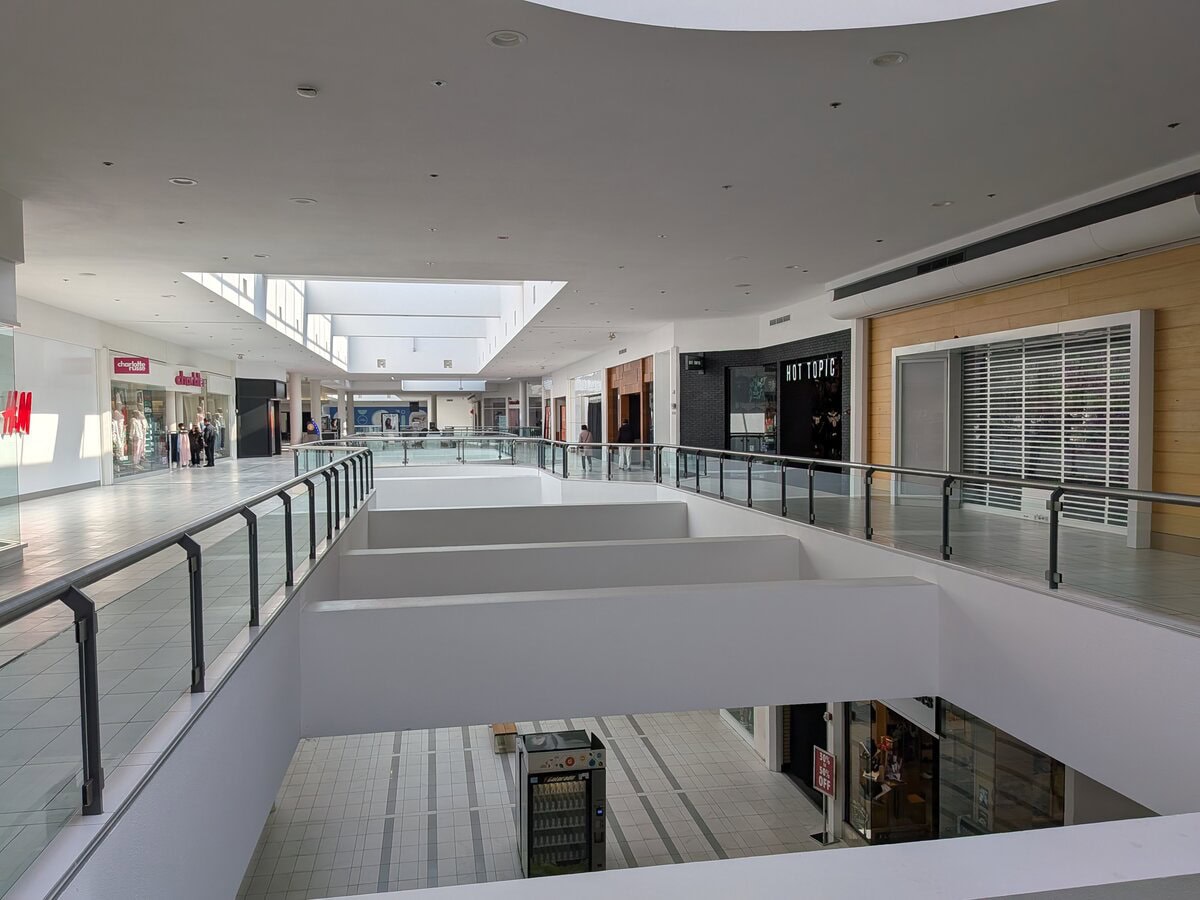Retail Launch and Early Development (1986-1990s)
Mershops North County Mall opened on a cool February morning in 1986.
Construction crews had cleared the last barricades, and by noon, families were streaming past six anchor stores: Sears, Nordstrom, JCPenney, J.W. Robinson's, May Company, and The Broadway.
Inside, escalators hummed, glass railings gleamed, and the two-story atrium smelled faintly of varnish and popcorn.
North County Fair, as it was called then, was just off Interstate 15 in Escondido, CA.
The Hahn Company, one of the most aggressive mall developers of the 1980s, developed the $130 million project.
It offered over 1.1 million square feet of retail space - bigger than any other mall in the northern part of San Diego County at the time.
Two bank branches were built on the northern side, and both were later demolished to make room for more parking.
Retailers came in fast. Foot Locker and The Limited opened alongside regional chains like Miller's Outpost.
Families lingered at Farrell's Ice Cream Parlour while teenagers wandered through Sam Goody and Spencer Gifts.
The food court featured neon signs and plastic palm trees. For many in Escondido, it was their first brush with escalators and multi-level shopping.
The mall pulled traffic away from smaller plazas nearby. By 1987, local newspapers were running features on how North County Fair had changed shopping habits in inland San Diego.
Sales tax revenue in Escondido went up. Apartment construction ticked higher near Bear Valley Parkway. Real estate brokers started pitching proximity to the mall as a selling point.
It was also the only enclosed mall in the area with Nordstrom and The Broadway under one roof.
That pairing alone gave it a higher-end edge compared to other centers along the 78 corridor.
In later years, when people looked for things to do in Escondido, California, this mall topped the list - not for anything flashy but because it was steady, bright, and always open.
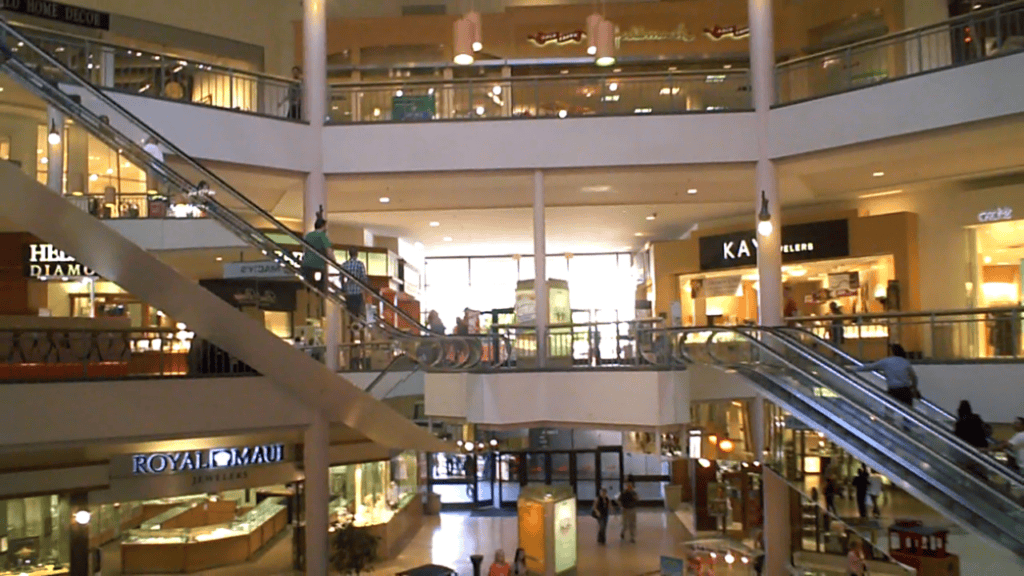
Brand Consolidations and Tenant Realignments (1990s-2000s)
By the early '90s, brand reshuffling started to move quietly through the North County Mall.
In 1993, Robinson's and May Company merged into a single retail banner: Robinsons-May.
Instead of expanding or opening new locations, the chain reworked what it already had.
Both department stores at North County Fair changed signs but kept their spaces - one focused on menswear and home goods, the other on women's clothing.
In 1996, The Broadway, which had anchored one end of the mall for a decade, closed after Federated Department Stores bought Broadway's parent company.
That same year, Macy's took over the former Broadway space, expanding its reach in Southern California.
The transition gave the mall a fresh draw without adding new square footage.
Westfield acquired the property in the late 1990s and pushed updates slowly. In June 2005, it dropped the "Shoppingtown" branding from all its U.S. centers.
North County Mall became Westfield North County, a cleaner, more global-sounding name.
The Robinsons-May era ended in 2006. Federated, which already owned Macy's, absorbed May Department Stores and shut down duplicate locations.
The result left two large vacant anchor spots in Escondido. They didn't sit empty for long.
The north building - once J.W. Robinson's - was chopped up into smaller chains: H&M, Old Navy, and Forever 21.
The south wing, once May Company, was reconfigured into a three-story Target.
These changes gave the mall a second wind. It wasn't luxury anymore, but it wasn't collapsing either.
Retailers with high turnover and trend-based inventory filled out the gaps while Westfield worked on getting national chains to renew their leases.
Renovations, Dining Pivots, and Anchor Departures (2010s)
In December 2010, the second floor got louder. North County Tavern + Bowl replaced Oggi's Pizza and three other smaller stores.
It covered 15,000 square feet and added eight bowling lanes, a thirty-foot bar, and seating for 300 diners.
It stayed open until 2017 when it quietly shut down. The spot now houses a comic book and memorabilia shop.
In 2012, Westfield announced a $55 million renovation. The updates weren't flashy but touched nearly every part of the property.
They redid entrances, modernized interior finishes, and resurfaced the aging parking lots with new tile, lights, and signage.
Tenants didn't leave during construction, but foot traffic dipped while the work went on.
The retail strategy also shifted around that time. Big box anchors weren't driving as many sales, and mall operators started paying more attention to fitness and entertainment.
That's when 24 Hour Fitness moved into the mall. Around the same time, Verizon, Apple, and other tech-focused retailers expanded their footprints, chasing more stable foot traffic.
But losses were piling up on the other end. The rise of e-commerce had already made inroads into department store revenue, and by the late 2010s, anchor stores were taking hits.
Nordstrom, one of the original six, decided to pull back. The company cited changes in customer behavior and an uncertain retail climate - language that hinted at broader corporate retreats.
The Nordstrom closure wasn't immediate. It stayed open until May 7, 2020, when lockdowns forced the company to close. The three-level space has been empty since.
Ownership Transfer, Leasing Gaps, and Management Turnover (2020s)
The decade started with losses. Less than two months later, after Nordstrom, Sears confirmed it would shut down, too, on June 22.
Both spaces were left vacant before the year ended.
There was some buzz about a turnaround. In mid-2020, Costco Wholesale entered talks to take over the former Sears footprint.
Blueprints circulated, and the city began reviewing proposals. But by the summer of 2021, those plans were scrapped without public explanation.
The mall changed hands in 2023. Westfield, which had owned it since the late '90s, sold the property to a joint venture between Bridge Group Investments and Steerpoint Capital.
The deal closed in February. Management transferred to Spinoso Real Estate Group, which took over leasing and operations.
The rebrand came fast - North County Mall dropped its Westfield name, signage was updated, and press releases hinted at a new era.
The new owners promised reinvestment. They floated ideas such as full-scale redevelopment, pop-up leasing for vacant suites, and reactivation of the upper level with newer dining concepts.
One anchor remained in flux - the former Nordstrom unit hadn't been touched, though talks were reportedly underway to bring in Round1 Bowling & Arcade.
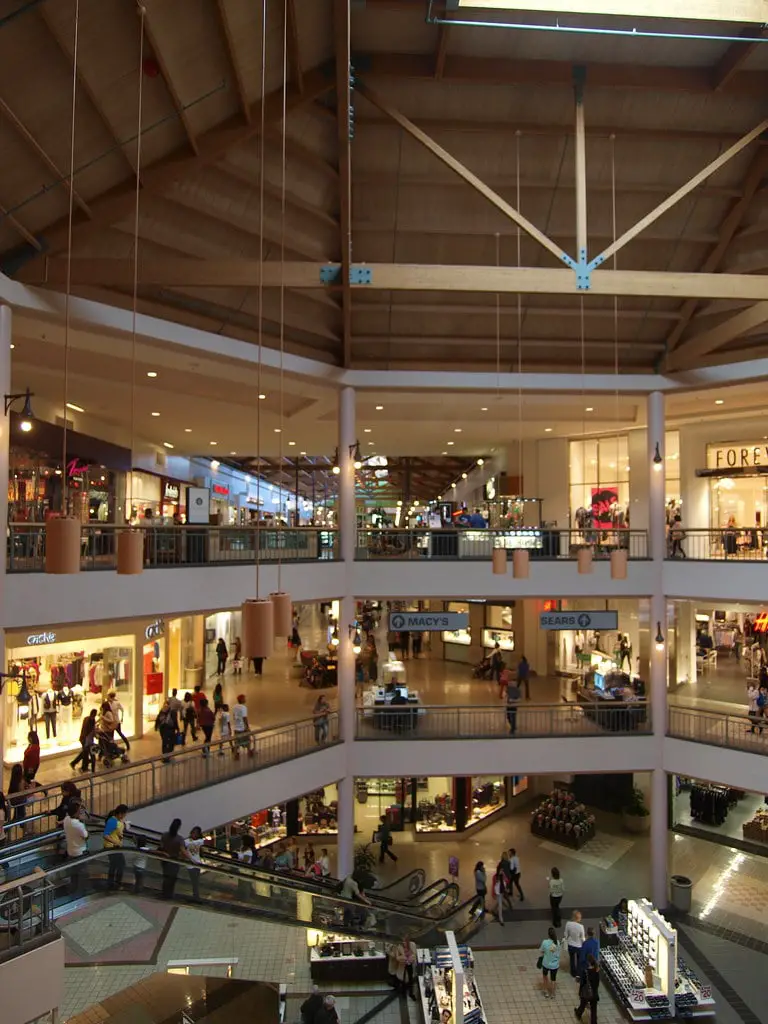
Civic Leasing, Mixed-Use Proposals, and Retail Recovery Hopes (2023-2025)
By early 2024, city officials had another idea. With Escondido's public library scheduled for renovations, staff needed a temporary home.
In February, the city council started talks to lease space inside North County Mall.
By spring, a deal had been confirmed. The library would move into a vacant space on the first floor.
It wasn't the first time a mall had become a temporary civic site, but this one was more significant.
The lease ran 18 months, and city staff said they planned to make full use of the square footage.
Community groups saw the move as a way to attract locals back to the building, especially on weekdays when foot traffic usually dipped.
Meanwhile, management pushed forward on new deals. In 2024, Spinoso Real Estate confirmed plans to bring Round1 Bowling & Arcade into the old Nordstrom space.
The buildout was expected to begin mid-year. A few restaurant concepts, mostly regional fast-casual chains looking for anchor-adjacent spots, had also signed letters of intent.
The Apple Store stayed put. 24 Hour Fitness and Macy's did as well.
Rumors circulated about a larger plan to tear down one of the anchors and build housing in its place.
Bridge Group Investments had previously floated mixed-use development at other sites in its portfolio.
Nothing was filed with the city, but a few brokers said conversations had already started.
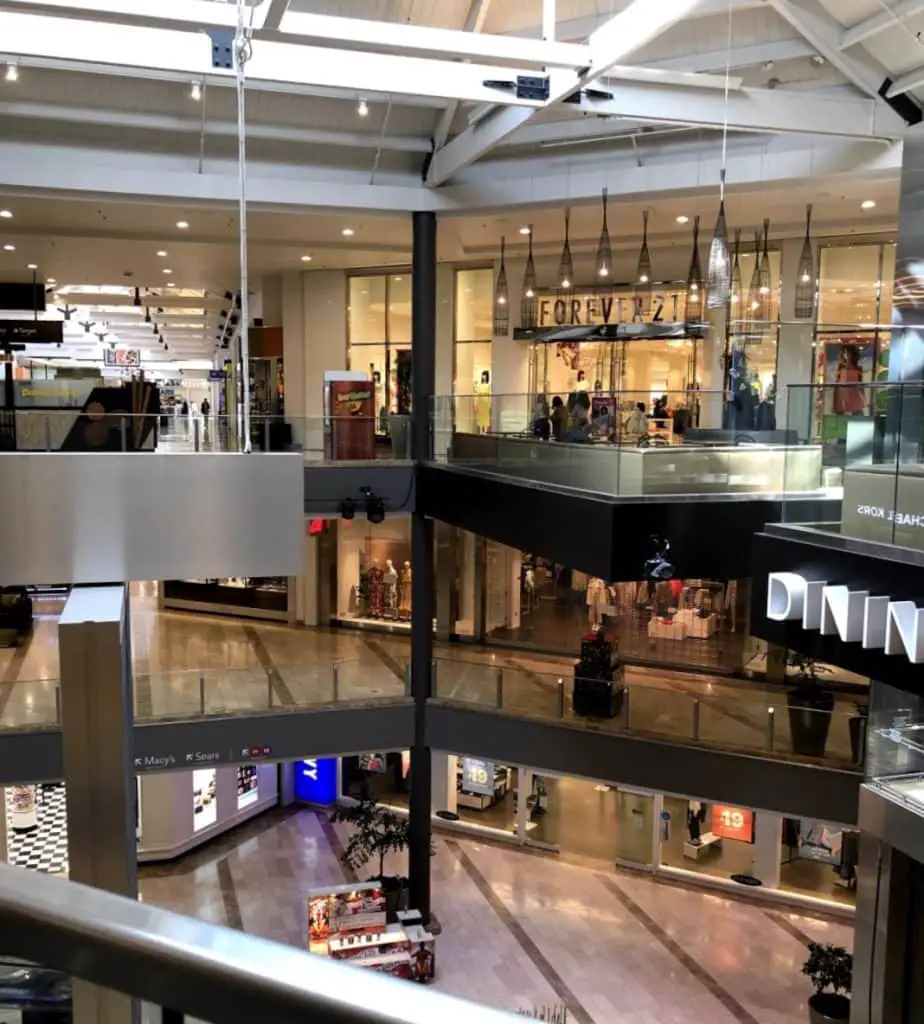
Mershops North County: Rewrites, Delays, and the Unfinished Pivot
The old Sears shell still sits there - two stories tall, sun-bleached, and wrapped in silence.
The loading docks on the side facing Beethoven Drive are chained shut. Sears has not locked the doors for nearly five years.
Inside the city council chambers, the conversation has restarted. On January 31, 2025, Escondido listed a closed-session item: negotiating a lease with Costco.
That same deal collapsed in 2021 without explanation. Now, it's back on the table - no public renderings, no timelines, but the name Costco was returned to the official documents.
For nearby tenants, it sparked cautious interest. For others, it meant another year of waiting.
Two storefronts away, something else is actually happening. Crews have begun preliminary inspections on the former Nordstrom unit.
The plan is to bring in Round1 Bowling & Arcade - a Japanese-born chain that bundles arcade games, karaoke, and bowling into one entertainment lease.
Management said it should open by late 2025. The glass is taped, and fresh wiring runs through the ceiling.
Downstairs, by the old Forever 21 space, another shift is underway. The Escondido Public Library is moving in.
After months of back-and-forth, the city signed an 18-month lease to use the mall as a temporary location while the main branch gets upgraded.
There's no single fix, no announcement that will turn the place around. But in 2025, Mershops North County Mall will also not be frozen.
One side is watching permits, the other is laying carpet, and in between, the library is setting out books.

